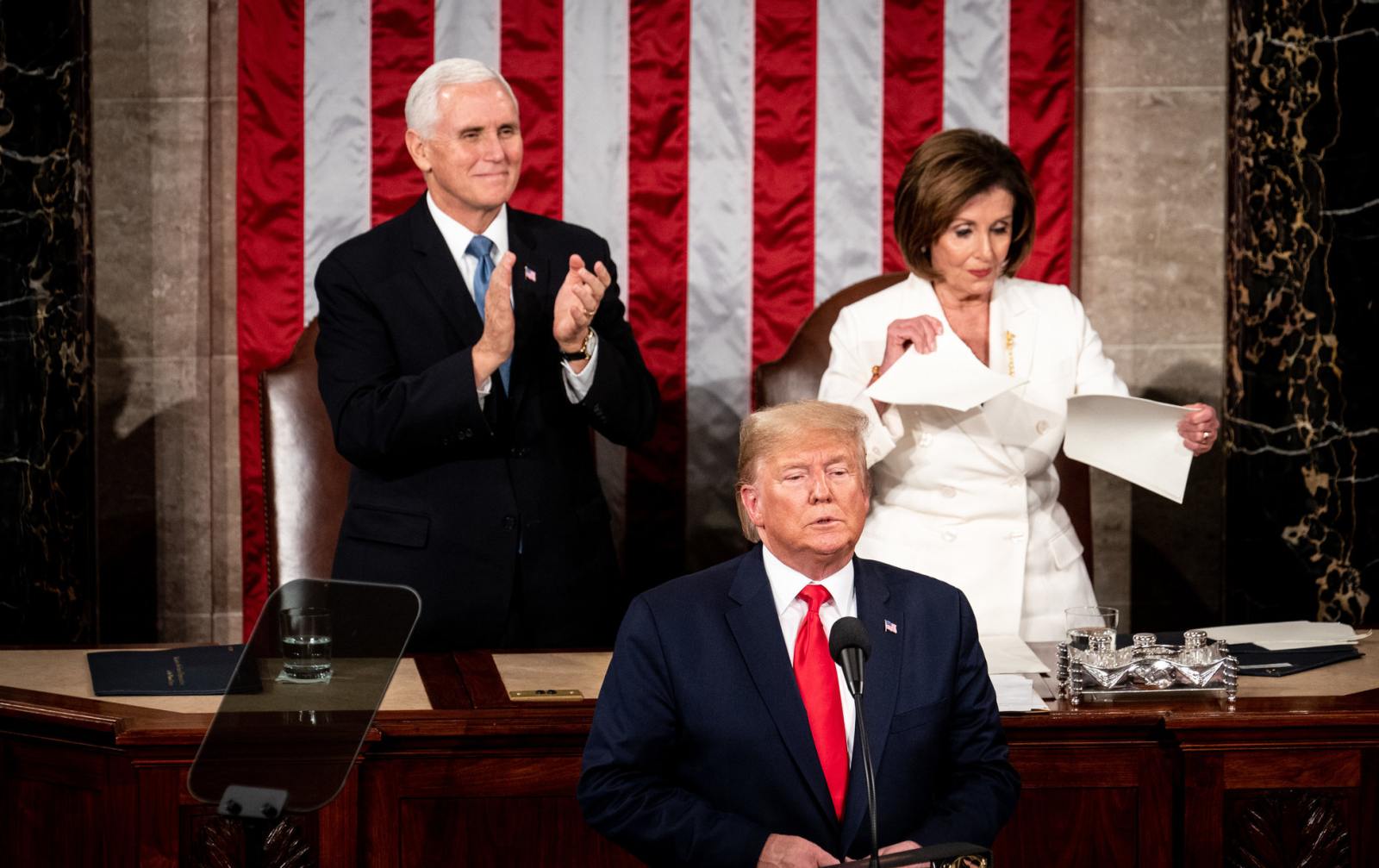Conspiracy theories have said that Donald Trump will not leave office if he loses. Bill Maher has been saying so for several years, as noted in Mediaite. And Slate has noted that “Trump has made at least 27 references to staying in office beyond the constitutional limit of two terms.”
The Washington Monthly gives five scenarios in which Trump could steal the election, noting that the possibilities are in character.
“Given my experience working for Mr. Trump,” [Trump “fixer” Michael] Cohen said, “I fear that if he loses in 2020, that there will never be a peaceful transition of power.”. . .
In a 2016 presidential debate, Trump refused to say whether he would accept defeat. “I’ll keep you in suspense,” he declared.
Some say that the Coronavirus crisis might give Trump a way to seize uncontrolled power. RollCall notes ways that the virus could throw a wrench into the political system, including the following:
The president’s biggest liability is likely with moderate or independent voters who were previously willing to overlook his tweets and style because of his handling of the economy. Even if those voters don’t blame Trump for the outbreak or are upset with his response, poor economic conditions will likely hurt his standing with swing voters, making it very difficult for the president to win reelection. . .
Forty Republicans voted against the initial, bipartisan coronavirus relief bill. . .It’s possible that opposing the legislation could be politically fatal, even pulling in members previously viewed as politically solid because they opposed it.
Politico asks what will happen if Trump refuses to leave office.
One scenario in particular has Democrats nervous: the lawsuit-happy Trump contests the election results in court. . .a court battle over a presidential election is not unprecedented. And Trump has shown a willingness to tie up his disputes in winding litigation. . .
“All candidates have a right to contest results in federal court,” [George Washington University professor Jonathan] Turley said. “It’s not up to the candidate to decide if an election is valid. It’s not based on their satisfaction or consent. They have every right to seek judicial review.”. . .
The president has long casually toyed with the idea that he could stay in office beyond the constitutionally set maximum. In March 2018, Trump praised the ruling Communist Party of China for abolishing presidential term limits. Then, a month later, he publicly pondered why he couldn’t be in office for 16 years, an apparent reference to President Franklin Delano Roosevelt, who died during his fourth term.
Fortune discusses how coronavirus could affect the elections, but notes that although primaries have been canceled or moved, the general election is mandated by the Constitution, and would require a Constitutional Amendment to make a change.
However, we’ve seen that even the courts can’t always have the last say, as noted by Fox.
Amid growing fears of the spread of the coronavirus, and warnings from the Centers for Disease Control and Prevention against large gatherings, [Republican Governor Mike] DeWine filed a suit Monday in a lower court to get the state’s primary elections postponed. The court ruled against him, and DeWine decided that he would keep the polls closed anyway, ordering state Director of Health Dr. Amy Action to use broad powers given to her under Ohio law to prevent the spread of disease to order the election be stopped. . .
But unlike other states, an election day can only be set by the state legislature or a court in Ohio. Because of that, when DeWine declared that he would not allow polls to open Tuesday for public health reasons, neither he nor anybody in his administration had the authority to actually change the election to a new date as has happened in other states.
So all a governor has to do is declare an “emergency.” We have seen that Trump is not at all averse to declaring emergencies. What if he were to say we couldn’t have a fair election if coronavirus is still wreaking havoc in November? Alternet offers a fascinating discussion.
It notes that if Trump were to cancel the election, his term would still expire in January, along with Mike Pence. He would not remain in power, Constitutionally. The next person in the line of succession would be the Speaker of the House—Nancy Pelosi. However. . .
On Tuesday, the Los Angeles Times published an analysis piece suggesting that President Donald Trump would risk making Speaker Nancy Pelosi president if he attempted to delay the 2020 presidential election.
Attorney and journalist Ian Millhiser took contention with that account. . .
“If there is no election before January 20, Trump’s term expires on that day, as does Pence’s so neither one of them is president.
Third in line is the Speaker of the House. But if there is no election, every house member’s term expires on January 3. So Pelosi isn’t president. . .
Fourth in line is the president pro tempore of the Senate, who is the senior-most member of the majority party. Currently that is Chuck Grassley.
But wait! 23 Republicans are up for election in 2020, and only 12 Dems are. If there is no election, all of their terms expire. . .
If 23 GOP senators lose their seats and only 12 Dems, that means a Democratic majority, so Patrick Leahy becomes the senior-most member of the majority party, and fourth in line.
So he becomes president on January 20, when Trump’s term expires.”
We are in uncharted territory.
Donate Now to Support Election Central
- Help defend independent journalism
- Directly support this website and our efforts
